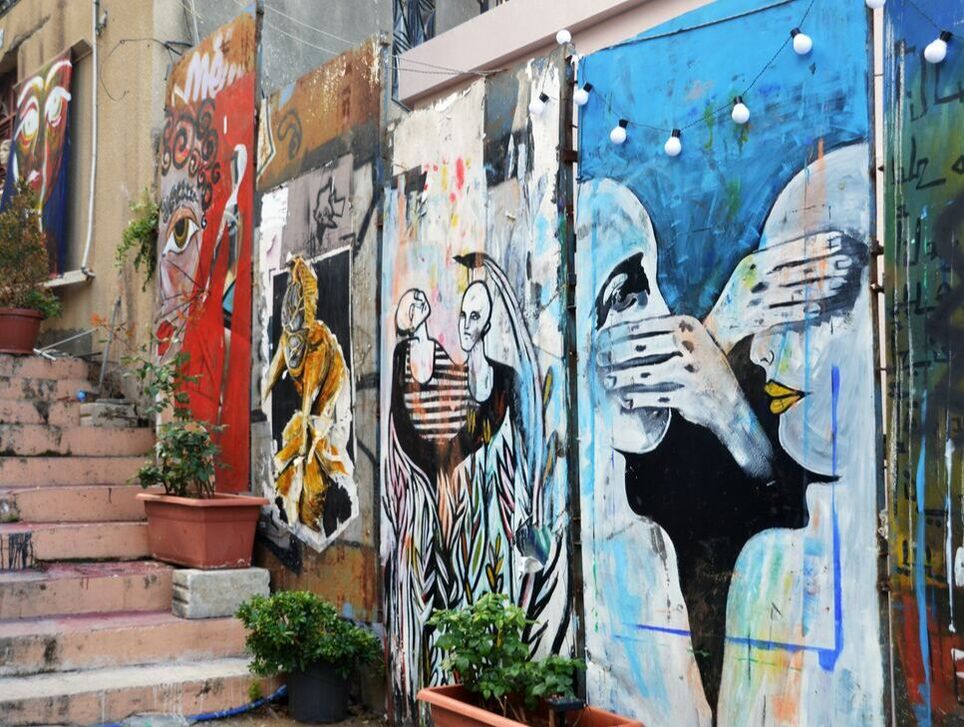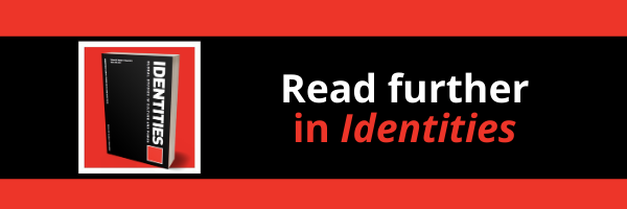|
|
Where can Others turn? On (de)coloniality, messy refusals and alternatives to Eurocentric modernity19/7/2023
Blog post by Ali Kassem, National University of Singapore
Over the past years, decolonization has emerged as a key project, discourse, and buzzword across academic and public debates. Within this has been a growing recognition of the nature of Eurocentric hegemony, ongoing global connected coloniality and various pressing global crises. A growing movement to contest Eurocentric modernity and its narratives across scales: from anti-racism to ecological resistance has consequently grown and been increasingly hollowed, demonized and attacked. In researching forms of inequalities and racisms in Lebanon, focusing on the country’s Muslim communities, my research has identified a significant anti-Muslim racism pervading the lives of Lebanese Muslims. Deeply structured by and entangled with Eurocentric/modernity coloniality and articulated at the intersection of the (historical and contemporary) local and global, this anti-Muslim racism emerges as a key axis of coloniality’s assault, erasure and violence at the level of everyday lived experiences. Bringing to fore the presence and prevalence of anti-Muslim racism within the Arab-majority world, the eastern Mediterranean and Muslim communities themselves, my work has offered a series of contributions in rethinking the so-called Middle East, racism and Islamophobia studies, as well as the global workings of coloniality beyond the Atlantic.
Moving this work further, I have been more recently interested in forms of ‘resistance’ to Eurocentric modernity and its various forms of assault – including but not limited to work against the internalized and institutionalized Islamophobia it instills across the world. Yet, in examining resistance among Lebanese Muslims, my research has strongly indicated a move away from confronting Islamophobia into a pre-emptive effort to make its very postulates obsolete. This ‘refusal’ – refusal of engaging or directly confronting Islamophobia – is substituted by self-work straddling both material and symbolic modalities. I analyse this self-work in my Identities article, ‘Messy refusal’, assimilationist movest, and the reproduction of Eurocentric modernity/coloniality: examining anti-Islamophobia in Lebanon’, and argue that it pivots around a pursuit of westernized education, European culture and capitalist employment. Through this, it pursues an elaborate performance of affluence, particularly through various forms of consumption and inclusion into a neoliberal global market as equal citizens. Accordingly, I identify the messiness of this refusal to argue that it is deeply entwined and constitutive of, as well as constituted by, an assimilationist move toward being accepted as ‘similar’ to the imagined modern rights-bearing citizen/human – the only legitimate mode of being under the hegemony of Eurocentric modernity.
With significant gains and impact on their lived experiences this effort was one participants celebrated throughout the field. In ‘Village-ness, discrimination, and urban modernity: Thinking alongside ‘village people’ in Lebanon’, I explore a similar dynamic whereby people from Lebanese villages, branded with the stigma of non-urbanity constructed and imagined as non-modernity, struggle to assimilate into an urban lifeworld as a mode of establishing their dignity and humanity in mainstream Lebanese social spheres. Across these projects, the underlying insight has been a realization that as racialized, stigmatized and violated communities in Lebanon turn to improve their living conditions, they (ironically) turn to Eurocentric modernity. Refusal has been standardly celebrated over the past decades as an alternative to resistance and negotiation – one that allows kinds of survival otherwise. Through this work, I have argued that refusal is messy – while it indeed allows forms of survival, it is far from being removed from power or working beyond its purview. It is far from being liberatory. Rather, I have shown, refusal can work through and from within the epistemic space of hegemonic Eurocentric modernity – drawing on its founding myths and orienting narratives – as it reproduces its structures and various forms of violence and erasure inflicted on those who remain Other(ed). It is precisely through this that refusing comes to interpellate, and to enact power. In other words, it is by speaking from within the epistemic space of the power it wants to move away from – although not speaking to it or against it – that refusal emerges as a mechanism implicated in its reproduction as a modality of its survival and being, even being materially Otherwise. As Audre Lorde’s oft-mentioned work explains, ‘the master's tools will never dismantle the master's house…They may allow us temporarily to beat him at his own game, but they will never enable us to bring about genuine change…What does it mean when the tools of a racist patriarchy are used to examine the fruits of that same patriarchy? It means that only the narrowest parameters of change are possible and allowable’ – precarious change for a westernized elite reproducing wider structures of assault and violence. Surely indicative of Eurocentric modernity’s hegemony and epistemic colonization, this turn is not unusual. Yet, I posit, it is also symptomatic of, in this case in the Arab-majority world, a dearth of alternatives – at least liberatory ones. Indeed, where can Eurocentric modernity’s Others turn if they wish to turn away from it? What possibilities for liberatory dignified futures exist beyond constructed traditions laden with forms of inequalities and assault? Ultimately, how can liberation be both imagined and enacted beyond both violence-laden ‘tradition’ and exclusionary ‘authenticity’ as well as the catastrophes of Eurocentric modernity/coloniality?
Read the Identities article:
Kassem, Ali. (2023). ‘Messy refusal’, assimilationist moves, and the reproduction of Eurocentric modernity/coloniality: examining anti-Islamophobia in Lebanon. Identities: Global Studies in Culture and Power. DOI: 10.1080/1070289X.2023.2207938
Read further in Identities:
When Eurosceptics become Europhiles: far-right opposition to Turkish involvement in the European Union Beyond home/host networks: forms of solidarity among Lebanese immigrants in a global era Voting to belong: the inevitability of systemic Islamophobia
0 Comments
Your comment will be posted after it is approved.
Leave a Reply. |
|
Explore Identities at tandfonline.com/GIDE |
|
The views and opinions expressed on The Identities Blog are solely those of the original blog post authors, and not of the journal, Taylor & Francis Group or the University of Glasgow.


